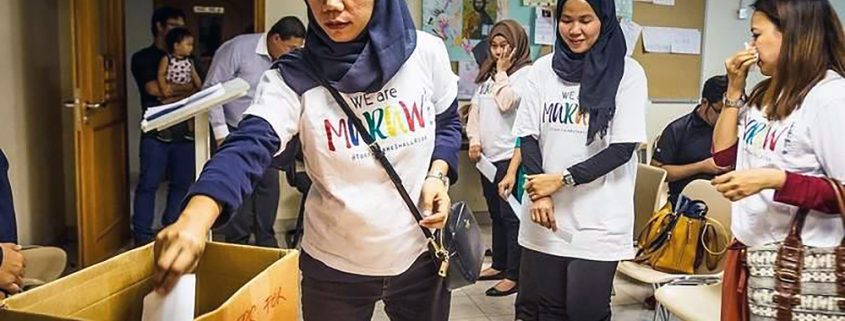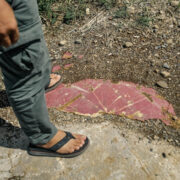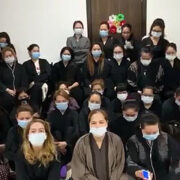OFWs worry about families in Mindanao evacuation camps
By Angel L. Tesorero, Khaleej Times
DUBAI, United Arab Emirates–Two months on and fighting in Marawi City in southern Philippines between government troops and a Daesh-inspired group is still ongoing. Death toll is rising and many Filipino expats are worried about their relatives staying at various evacuation camps.
Sharjah resident and former MarCom (Maranao Community) president Roy Tamano said: “The forces of Maute group have dissipated – they are now playing hide-and-seek with the government. But there are still sporadic clashes and it is still not safe for Marawi residents to return home.
“Thousands of families have been staying in different evacuation centres since the fighting erupted before the start of Ramadan on May 23. Many people have died not because they were caught in the crossfire but because of the poor condition at evacuation centres,” Tamano told Khaleej Times.
The fighting in Marawi has resulted in Philippine president Rodrigo Duterte’s declaration of martial law in the entire province of Mindanao to stem terrorism and restore order.
“They (Marawi evacuees) are down both physically and psychologically. The (Philippine) government’s Department of Social Welfare and Development is doing its best to help the refugees but they can only do so much as the sheer volume of needs by the evacuees is too much.”
Luckily for Tamano, his immediate relatives were the part of the first wave of evacuees and they are now safe at the homes of their relatives in nearby provinces.
“But many ran away with nothing but a few valuable possessions. Now, they only rely on the kindness of socio-civic groups and charity organisations,” Tamano said.
“The fighting has not only wrecked havoc on their livelihood but also on their morale. Maranaos (residents of Marawi) are a proud people and now they had to swallow their pride and accept ‘donations’ just to survive,” he underlined.
Tamano added that the number of casualties reported by the government is very conservative.
According to a recent report by the military, around 507 people have died – of this number, 379 were terrorists ; 89 were soldiers and 39 were civilian residents.
“Many cadavers are not yet collected,” Tamano said. “Only after the war has concluded and a thorough clearing operation is conducted can we ascertain the number of casualties,” he explained.
Even the body of the husband of Tamano’s cousin, Aleem Saipodin Gato, an Islamic preacher and former councillor of Marawi City, who is believed to have been killed by the Mautes is still not recovered.
For Hanifah Ampatuah, she is worried that her family and relatives have nothing left of their properties when they go back home.
“Our rice fields were burned and our source of income were destroyed. Even our ancestral home, which was built in the 1950s and has withstood the test of time, was razed to the ground,” she said.
“We fervently hope and pray that the fighting will stop and we can start rebuilding our beautiful Islamic City of Marawi,” she concluded.
Filipino community holds prayer for peace
Muslim and Christian Filipino expats recently held an ecumenical Prayer for Peace in Marawi at St. Francis Church in Jebel Ali. Vice-consuls Marianne Bringas and Elizabeth Ramos were present as well as some leaders of the Filipino community.
In Abu Dhabi, the Philippine Embassy collected letters of support from students and sent them to the Philippines.
“We were enjoined by the Department of Foreign Affairs to facilitate the participation of overseas Filipinos in UAE in this campaign. Of course, we are more than willing to do as our little contribution to the efforts of our brave soldiers in fighting terrorists. We hope that through these messages of support, the whole armed forces would feel that they are alone in their noble mission,” Rowena Pangilinan-Daquipil, third secretary and vice consul at the Philippine Embassy, told Khaleej Times. #







